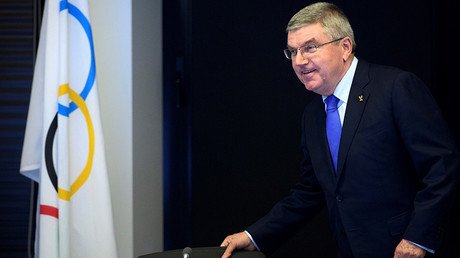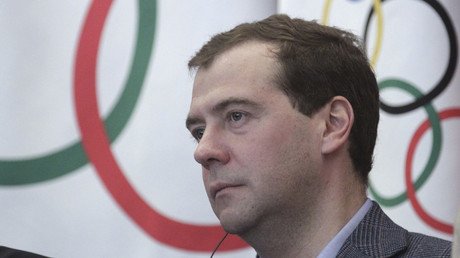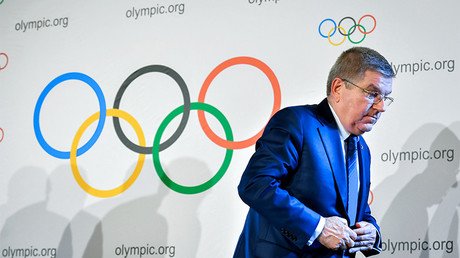Dozens of Russian athletes’ Games fates in limbo as decision on Olympics appeals adjourned
Two groups of prominent Russian athletes seeking late entry for the PyeongChang Olympics have had their appeals adjourned. Decisions on their participation will now be made on the eve of the opening ceremony at the earliest.
Two urgent applications filed by 47 Russian athletes are set to be reviewed on Thursday.
Last week, the Court of Arbitration for Sport (CAS) cleared 28 Russian athletes and lifted their lifetime bans, declaring that evidence presented by the International Olympic Committee (IOC) was “insufficient” to establish that “an anti-doping rule violation (ADRV) was committed by the athletes.”
The CAS decision with met with severe criticism from the IOC, claiming that it will have a “very negative” impact on the global fight against doping. “The IOC regrets very much that – according to the CAS press release – the panels did not take this proven existence of the systemic manipulation of the anti-doping system into consideration for the other 28 cases,” it said in a statement following the CAS verdict.
“The result of the CAS decision does not mean that athletes from the group of 28 will be invited to the Games. Not being sanctioned does not automatically confer the privilege of an invitation.”
IOC President Thomas Bach lambasted the superior sports court for clearing banned Russian team members, saying that they “cannot have a situation of [the] CAS losing its credibility with athletes.”
RT spoke to Olga Fatkulina, a Russian long-track speed skater, who did not receive an invitation to the Games despite being cleared by the CAS a week ago.
“It is sad for me to see other Russian athletes posting videos and photos from Korea. Clearly, the first explanation which comes to mind is that they want to get rid of the strongest competitors. They give no explanation, do not share their reasons, that’s why the fear of losing seems the only plausible motive behind the decision,” she said.
Fatkulina said she can’t help being upset about the situation. “I saw those looks from my foreign colleagues, I heard them sneaking around. Some foreign athletes even took pictures of me.It wasn’t a pleasant feeling when other athletes refused to enter an elevator with me. I felt helpless, because there was no way for me to prove them wrong.”
On Monday, the Olympic governing body still denied invitations to the 2018 Games in respect of 13 Russian athletes and two coaches, ignoring the CAS ruling which had dropped all doping allegations against them.
In response to the IOC’s ban, 32 banned Russian national team members, including Sochi Olympic champions short-track skater Viktor Ahn and biathlete Anton Shipulin, filed a lawsuit with the Ad Hoc Division of the CAS to challenge the IOC decision barring them from the upcoming Games.
Swiss law company Schellenberg Wittmer, which acts for the Russian team, stated that the invitation criteria applied to the Russian athletes was non-transparent and illegitimate. It also outlined that citizenship discrimination, inobservance of the CAS verdict, and damage inflicted to the athletes’ reputation, dignity and professional careers were the grounds for opening legal procedures.
The situation has prompted some analysts to suggest that a new global body is required to ensure that rules are fairly enforced.
“The IOC has almost plenary power to even ignore what the Court of Arbitration for Sports has decided,” Christopher Chambers, lawyer and professor at Georgetown University, told RT.
“I think nations would probably say, ‘We don’t want the IOC making arbitrary decisions that may one day affect our athletes,’” he said.
“The International sports community and member nations really need to get together and create a body that can enforce rules fairly and across the board equally, because we do not have that right now. There’s enough time to really have the IOC to sit down with CAS representatives and Russian representatives and get things done. There’s time to allow these athletes, who have been cleared, who are innocent, who have been shown to be innocent by the CAS, to compete.”















